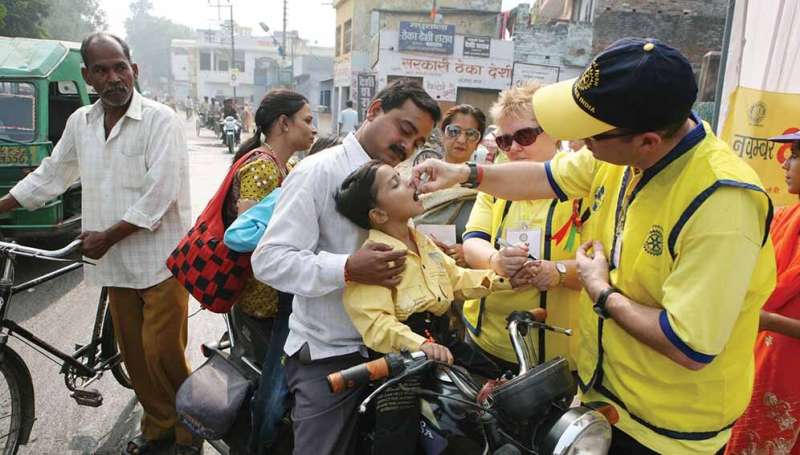Polio, measles outbreaks 'inevitable,' say vaccine experts

Interruptions to vaccination programs caused by the COVID-19 pandemic could result in new waves of measles or polio outbreaks, health experts warn.
A growing number of one-off immunization campaigns and national routine vaccine introductions are being delayed amid social distancing and other measures to curb the spread of SARS-CoV-2, leaving millions unprotected.
Uptake of routine immunizations has dropped in many vulnerable countries, with people unable or unwilling to travel to sessions—something that was also observed during the 2013-2016 Ebola outbreak in West Africa.
With both preventive campaigns and routine immunizations impacted, "we'll have an increasing number of children who will become susceptible to vaccine-preventable diseases and that will definitely lead to outbreaks," says Richard Mihigo, program manager for immunization and vaccines development at the World Health Organization's Africa office.
Coinciding with the COVID-19 pandemic, "such outbreaks will not receive the same attention as in normal times," he adds.
"We saw this during the [2013-2016] Ebola outbreak in West Africa, where we had an outbreak of measles at the same time. And recently we've seen in the Democratic Republic of Congo that an ongoing outbreak of measles has killed more people than the ongoing outbreak of Ebola. But all attention was on Ebola."
Following the WHO's recommendation last month that all mass vaccination campaigns should be suspended in response to COVID-19, Mihigo says mass preventive campaigns—which help to fill in the gaps in places with weak routine immunization—had been put on hold in almost all African countries, while campaigns to target existing outbreaks are being considered on a case-by-case basis.
Those halted include preventive measles campaigns in Chad, Nigeria, Ethiopia and South Sudan, as well as in Kinshasa, the capital of the Democratic Republic of Congo. More than 6000 people have died since last year in the DRC in what is currently the world's largest measles outbreak. These campaigns alone had aimed to reach 21.2 million children under the age of five, Mihigo says.
Meanwhile Gavi, the global Vaccine Alliance, which vaccinates almost half of the world's children, announced earlier this month that 14 major immunization campaigns supported by the alliance had been postponed, along with four national routine vaccine introductions.
These delays, which impact campaigns against polio, measles, cholera, human papillomavirus (HPV), yellow fever and meningitis, have affected at least 13.5 million people in 13 of the world's least-developed countries, the alliance says, cautioning that many more delays are expected. The Global Polio Eradication Initiative, which partners with Gavi and the WHO, has also recommended that all polio vaccination campaigns be paused worldwide.
Countries with fragile health systems and ongoing conflicts—many of which are yet to feel the full impact of the novel coronavirus—are most at risk, says Charlie Weller, head of vaccines program at the Wellcome Trust.
She too highlights the DRC, where Ebola has struck in areas of active conflict, as a country particularly at risk: "The impact to their health system and how they will be able to manage through and beyond COVID-19 is a very big concern."
Gavi chief executive, Seth Berkley, warns that the international community needs to act to prevent potentially devastating outbreaks of vaccine-preventable diseases.
"The legacy of COVID-19 must not include the global resurgence of other killers like measles and polio," he says.
However, some experts believe that a rise in cases of vaccine-preventable diseases are inevitable.
When vaccination coverage goes down, inevitably more outbreaks will occur, including of life-threatening diseases like measles and polio, WHO deputy director-general Zsuzsanna Jakab says.
WHO spokesperson for polio eradication Oliver Rosenbauer says that although temporarily halting polio vaccination campaigns was the "only recommendation to make under this new reality," the organization was anticipating an increase in polio cases as a result—including a possible spread of the virus to new areas.
Echoing Mihigo's warning about COVID-19 distracting from other disease outbreaks, Rosenbauer stresses the need for continued polio surveillance and a return to vaccination campaigns "as rapidly as is safely feasible."
















